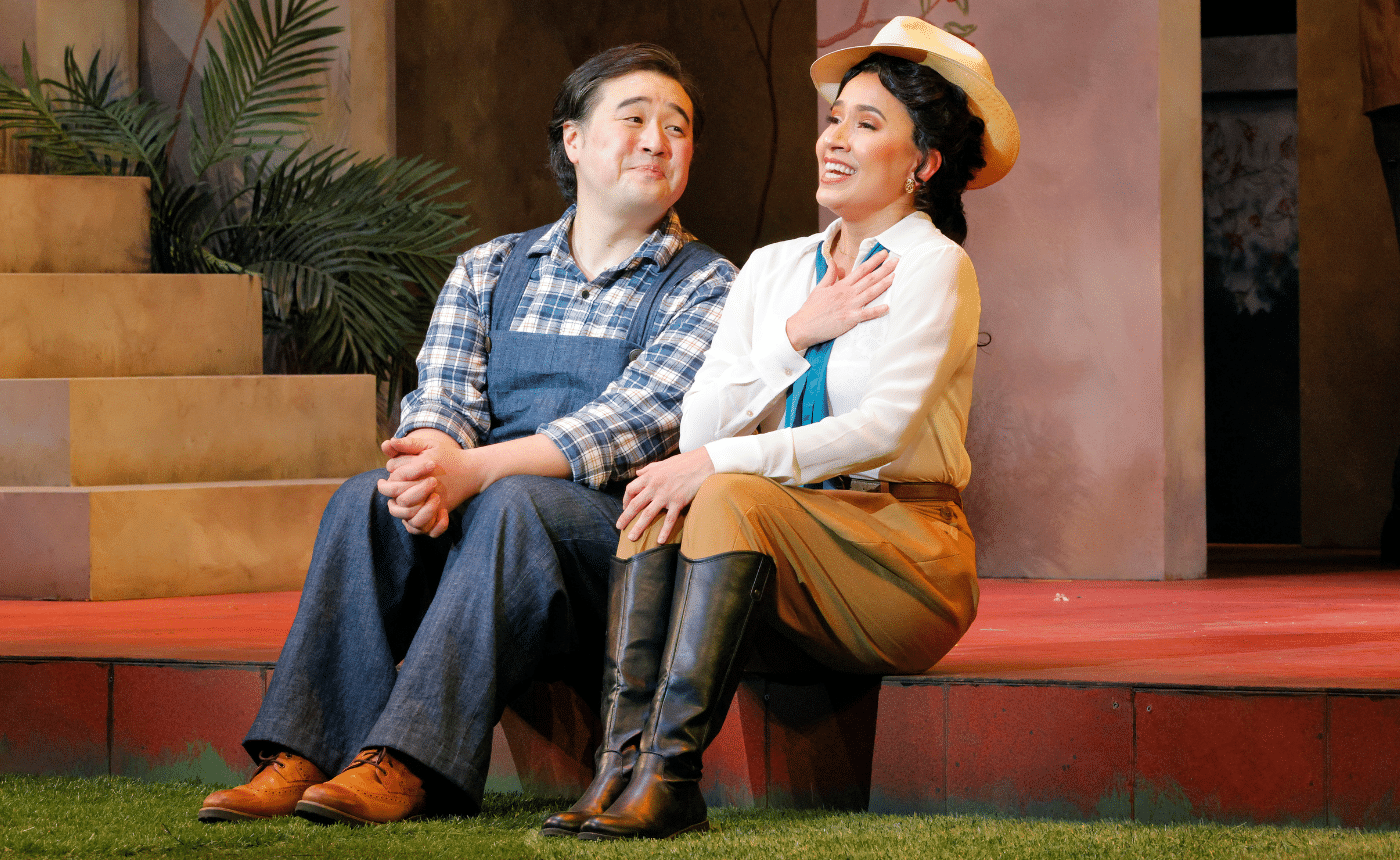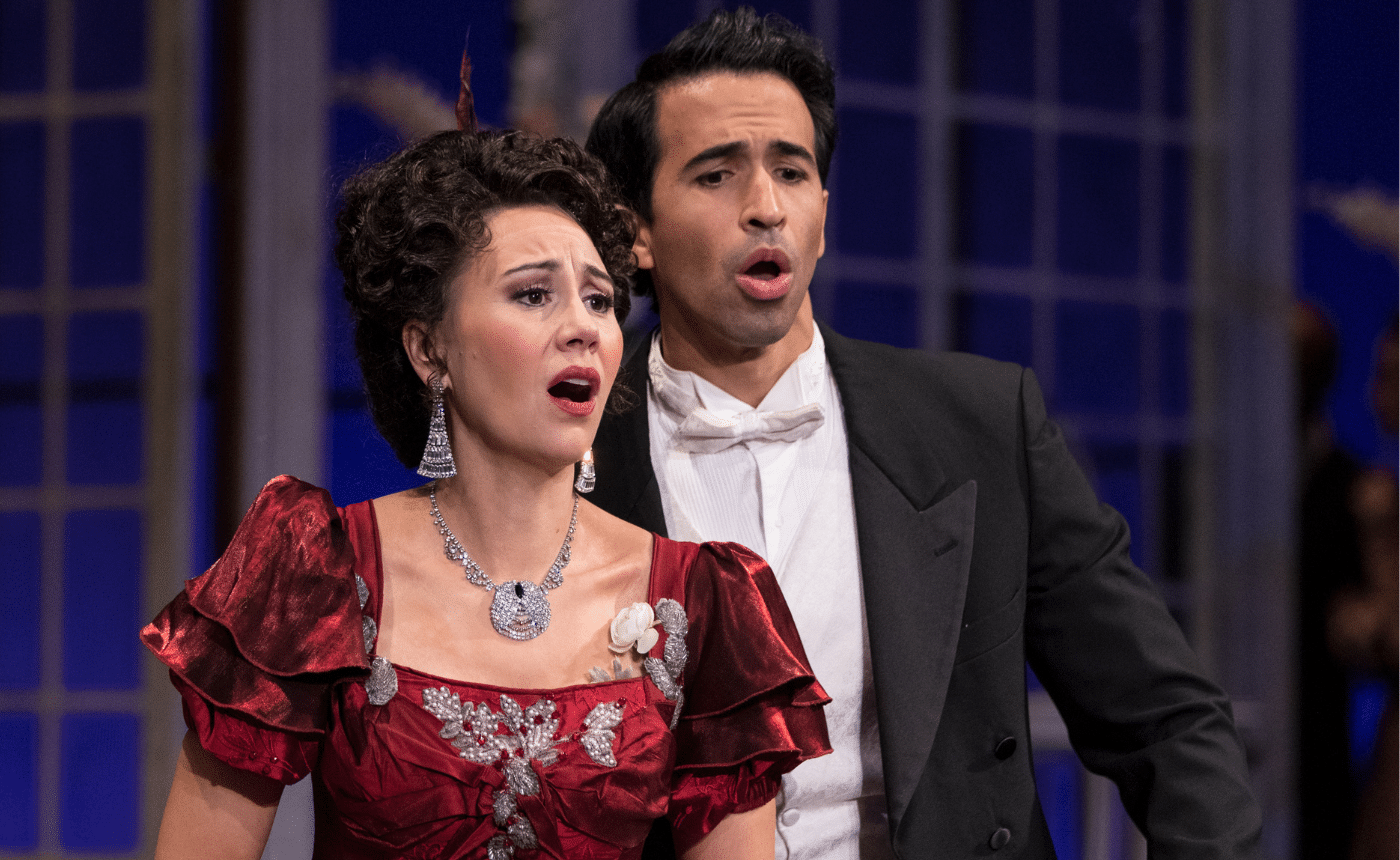An Average Day of Daily Reminders

Throughout their schooling, singers are taught that their grandiose expectations and childhood dreams of fame, fortune, and critical acclaim are seldom realized. Anyone with an active performing career will tell you that, though they worked very hard to accomplish their goals, a substantial amount of luck was involved in their success. However, trying to convince a room full of American twenty-somethings to think in more realistic terms is like trying to convince a teenager of, well, anything. There is a sense of entitlement that comes along with the dreams I’ve nursed over the years. There is a feeling that what I’ve achieved thus far should be enough to qualify me for the big time. I’m ready, right?
When I first found out I had been chosen as one of two new young artists at Utah Opera, I was overjoyed. Not only did I have a job, I had a good one. I was going to a well respected company where I could hone my skills. Almost 500 people applied for these two positions, and somehow I was lucky enough to snag one. Sure, the job would include a lot of outreach performances – considered by many performers to be the lowest form of work– but who cares? I love to teach, and this would put me one giant step closer to the big time for which I am so obviously ready (right?). I signed my contract, drove across the country, and began my frequent prayers that these complete strangers with whom I would be working wouldn’t hate me.
An average day for my colleagues and me involves an 8 am arrival at the opera studios. We pile into a van and drive to whatever school happens to be listed on the calendar, hastily gulping down our granola bars and daily caffeine. When we arrive at the school we have about half an hour to set up a 7 by 14 foot set and organize the props and costumes for 22 different musical numbers, nine or ten of which will be sung during each performance of a mock game-show called “Who Wants to be an Opera Star?” We generally perform seven to nine shows per week, often two back-to-back shows on a single day. Over the course of a school year we will perform approximately 150 of these shows.
After describing my day to my best friend from college, who currently lives in Texas, I was met with an exasperated silence. “My God, Abi. That sounds exhausting. I bet you hate it. Do you ever get to really perform, you know, for real audiences?”
That’s when it hit me. I don’t hate it. In fact, I honestly cannot imagine performing for anyone more wonderfully receptive than a group of students. The look of shock on kids’ faces when they hear the Soprano sing for the first time is something you will never see at the Met. Fidgety and rowdy until she opens her mouth, the kids are suddenly rapt with wonder. I still laugh when the front row ducks for cover, while the back row attempts to peel their jaws off of the floor as our Tenor blasts brass-like high notes to the back of the school gymnasium. Our Baritone could make any little boy proud to join the chorus with his swaggering rendition of “Toreador,” and there is nothing to match the intoxication I feel when my snippet of Carmen’s “Habanera” begins and the entire room perks up. “I know that one!” they gasp, as the iconic piano line wafts out. Though they have no idea what I’m singing about, at least three little boys will blush and drop their eyes as I send them 15 seconds of Bizet’s sensual serenade.
What many performers forget is why they perform in the first place. Many will give the noblest answers when asked the question, but ultimately what any artist wants is acclaim, fame, and a healthy paycheck. Simply put, professional artists feel they have something necessary to say and that people should pay to hear it. The problems of dwindling ticket sales are often attributed to the inaccessibility of the operatic art form. We’ve heard the complaints before – it’s in a foreign language, the plots never go anywhere, the people just stand there, real people don’t sing about their problems, how ridiculous! Any opera lover will tell you that none of those accusations will stand.
However, I wonder if the real problem isn’t with the sense of haughty entitlement that many singers in their twenties possess. It is hard to be enamored of someone who is already enamored of themselves, and American audiences have a short fuse for arrogance in the arts. Too many singers today spend their time onstage waiting for the applause, the reviews, and yes – the paycheck – but what about spending time with the audience, actually communicating the message we claim to have for them? Show-biz is a past paced profession, but what we as artists do requires a complete surrender to the immediacy of the moment at hand.
Spots in Young Artist Programs are coveted – as long as it means lots of things singers can add to their resumés (by the way, Utah Opera provides a TON of those opportunities) – oh…and no outreach please. It’s amazing to see the look of veiled disdain on a colleague’s face, when they find out that you’ve been singing outreach performances. Ask them to do a charity event and they will likely ask you if anyone of importance will be present. Hey, if I’m not getting paid, I should at least be able to do some networking!
I call on American singers to change their attitude about outreach. Go and sing for a bunch of 6th graders and try to tell me it isn’t the most soul nourishing experience you’ve had in weeks, months – years even. It’s a humbling moment the first time a 7 year-old asks why you chose this profession. Have you asked yourself that question lately? More importantly, have you answered it truthfully?
After my first school show a little girl approached me, cautiously and with eyes like saucers. “Do you have a question?” I asked. Her eyes moved to the floor as she shook her head, twisting her foot back and forth. Suddenly she launched herself forwards and flung her arms around my hips, the highest point on my body she could reach. “I want to be an Opera Star too,” she said, and ran away.
This is why we do it, and I thank God for letting the best part of my day be my work.





